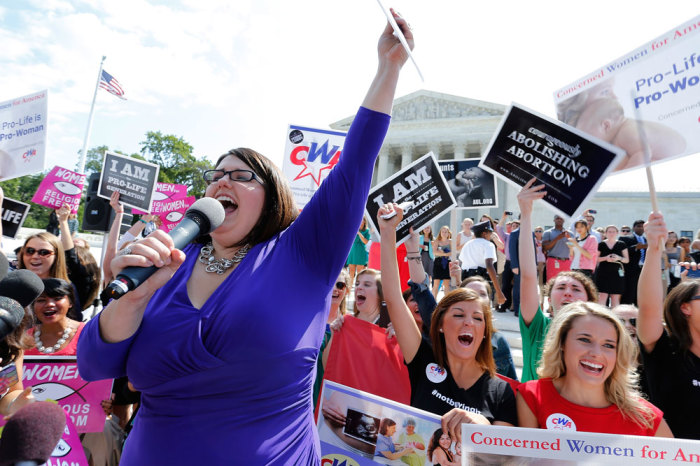Pro-Abortionists May Lose Debate Because They Have Fewer Babies

Americans are becoming more pro-life because pro-lifers have more babies than pro-choicers, a new study finds.
Looking at data from the General Social Survey from 1977 to 2010, Northwestern University sociologists J. Alex Kevern and Jeremy Freese found evidence that the higher fertility rates of those who are pro-life compared to those who are pro-choice contributed to Americans becoming, on average, more pro-life than they would have been if the fertility differential did not exist.
The study, "Differential Fertility as a Determinant of Trends in Public Opinion about Abortion in the United States," is a working paper published July 7 by Social Science Research Network.
Over the 34 year time span that was studied, pro-lifers had about 2.5 children on average for every two children born to pro-choicers. In other words, pro-lifers had 27 percent more children than pro-choicers.
In addition to having more children, the children of pro-life parents appear to be more likely than the children of pro-choice parents to adopt the views of their parents. Kevern and Freese pointed to prior research showing this and found some evidence for this finding in their own study. They point out, though, that the differences in the transmission of beliefs from parent to child could be due to cultural shifts rather than differences between pro-choice and pro-life parents.
The researchers also acknowledged that those with more siblings may be more likely to hold pro-life views independent of the views of their parents, but they had no way to test that hypothesis.
The researchers conservatively estimate that if there were no fertility differences between pro-lifers and pro-choicers, Americans would be, on average, about five percentage points less pro-life.
The fertility differential between pro-lifers and pro-choicers has grown even larger since the late 1970's, the study points out. So, if the impact of those differences on abortion attitudes continue as they have, the effect will likely be even larger in the future.
Fertility differences is only one factor, Kevern and Freese point out, driving shifts in public opinion. Attitudes on gay rights, for instance, show similar fertility differences as abortion attitudes. Yet, there has been a dramatic change in support for gay marriage. While fertility differences can make small differences over a long period of time, cultural shifts (people changing their mind) can be large and happen in a short period of time. Any fertility advantage held by supporters of traditional marriage was swamped by the rapid and large shift in views on gay marriage.
"In other words, differential fertility becomes part of the story as a cleavage on a social issue becomes protracted, and is relatively inert in the face of more rapid social change," they wrote. "A possible implication that might be considered in future work is that large population attitude changes that run counter to fertility differentials need to happen more quickly if they are to happen."




























